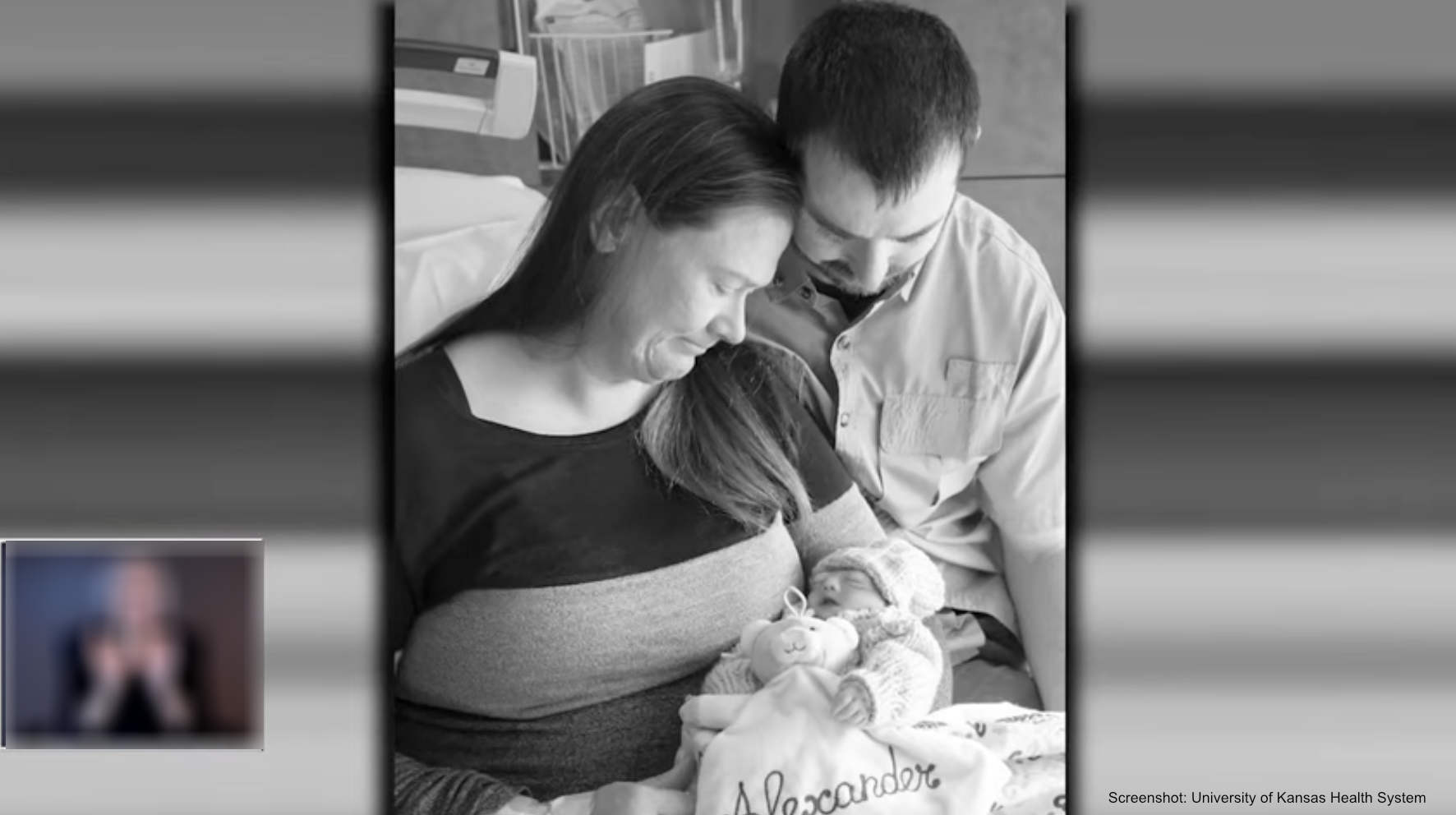A baby boy born in Missouri last month has made a lasting impact though he only lived for four minutes after birth. His parents have called him a “fighter.”
Baby Alexander was diagnosed at 22 weeks with anencephaly, in which his skull did not properly form. Most children with anencephaly will die shortly after birth, though there has been at least one well-known case in which the child survived for three years and nine months.
Alexander’s parents, Abraham and Christine Jacobs, were heartbroken. Already parents to one son, Ezekiel, they were told that if Alexander survived to birth, he would likely die soon after. After researching the condition, the couple decided that they would carry him to term despite Christine’s initial thought that she would have an abortion. Their hope was that Alexander would survive long enough to be able to donate his organs to other children with health conditions once he had passed away.
Alexander’s mother said that their doctor had “a discussion” with them after the diagnosis.
“Our doctor gave us our options. She didn’t persuade us either way, but she told us what our options were. For Abe, it was like a no-brainer decision. For me it was a lot more complicated because I guess up until that point I guess I thought I probably would terminate because of my age and the risks.”
But then, Christine learned about the process of aborting a child at 22 weeks — and this knowledge changed her mind:
… What was most impactful for me was when our doctor told us the process. She said that in order to terminate at that point, at 22 weeks, it means that the doctors have to inject his heart with potassium chloride and they have to stop his heart before a delivery.
I’m a forensic psychiatrist. I’ve worked in prisons and with inmates and all I could think was, ‘Potassium chloride — that’s a lethal injection that we give to death row inmates.’ And I just, I don’t know, I couldn’t handle the idea of that being how this innocent life ends.”
Abe said he was against an abortion right away “because of our other son. He’s such a good kid.” He added, “I don’t want to lose that chance of [Alexander] being able to actually do something for others or prove himself. We thought possibly the instrumentation that was being used [the ultrasound], it could be faulty. There was always that chance, but more than likely it wasn’t. But I did not want to play the role of God and stop my own son’s heart from beating.”
Dr. Noria McCarther, maternal-fetal medicine fellow at The University of Kansas Health System, said they monitored Christine closely. Increased amniotic fluid can be a complication of anencephaly, but doctors were able to drain some of that extra fluid during the pregnancy to help keep Christine comfortable. She said, “I’ll never forget Alexander. He is really special.”
Alexander survived to birth, and lived for four minutes after birth. His parents donated all of his organs. According to KCTV, his four heart valves were each donated to other newborns who needed them.
Dr. Sean Kumer, a transplant surgeon and associate chief medical officer at The University of Kansas Health System explained, “We were prepared in advance for this particular situation because it takes a lot of coordination to make the successful transplants. Alexander’s other organs were donated for research, which could potentially save even more lives down the road.”
Alexander’s father and his mother are immensely proud of their son. They knew Alexander’s life was valuable and mattered.
“The hope that we had came true,” Abraham said in an interview with Medical News Network. “And I was beaming because he was still my son and he made it. He made it.”
Christine said, “Alexander means protector of men, and he has lived up to this name. And as far as I’m concerned, he’s not with us today because he’s just too good for this world.”







